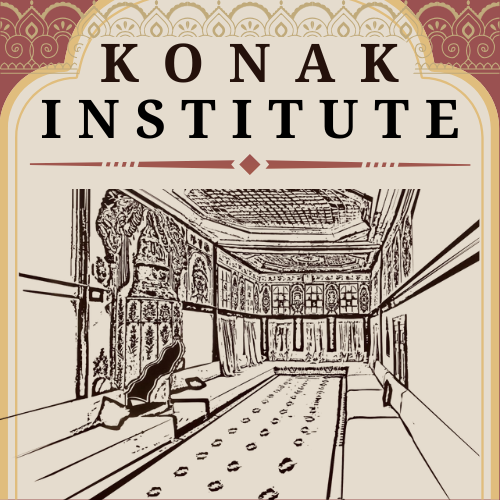
Our Museum
The Museum of Muslim Life in Albania is a pioneering cultural and educational initiative dedicated to preserving, presenting, and honoring the multifaceted history of Albanian Muslim identity. It brings together three crucial dimensions: the deep-rooted Islamic heritage of Albania and the Balkans, the traumatic legacy of communist-era persecution, and the ongoing story of vibrant Muslim life, culture, and creativity in the region. As the first and only institution of its kind in Albania—and indeed in the broader Balkans—the museum project seeks to address community and public needs for recognition, historical awareness, cultural preservation and education.
This museum responds to a significant gap in public understanding and collective memory. Despite centuries of Islamic presence in Albania, the Muslim experience has been widely marginalized or misrepresented in official narratives. The atheistic communist regime (1945–1990) inflicted severe repression on all religious communities. Mosques, tekkes, and churches were destroyed or repurposed, clergy were imprisoned or executed, and religious practice was criminalized. This history remains under-documented and poorly understood by younger generations, leaving a painful void in national and communal memory.
The museum is both a space of remembrance and renewal. It highlights the intellectual contributions of Albanian Muslim scholars and the everyday religious practices that shaped Albanian spiritual life for generations. At the same time, it documents the suffering and resilience of Albanian Muslims during decades of forced secularism and religious erasure. Through carefully curated artifacts, oral histories, sacred art, manuscripts, photographs, and architectural models, the museum builds a narrative that is at once deeply rooted in tradition and poignantly modern.
In addition to these exhibitions, the Institute has organized public lectures and cultural events focusing on poetry and devotional songs. These activities aim to engage youth, foster community dialogue, and cultivate appreciation for the spiritual and artistic dimensions of Albanian Muslim life. The museum also collaborates with schools and universities, offering educational programs that deepen historical understanding and encourage critical reflection.
The museum is both a space of remembrance and renewal. It highlights the intellectual contributions of Albanian Muslim scholars and the everyday religious practices that shaped Albanian spiritual life for generations. At the same time, it documents the suffering and resilience of Albanian Muslims during decades of forced secularism and religious erasure. Through carefully curated artifacts, oral histories, sacred art, manuscripts, photographs, and architectural models, the museum builds a narrative that is at once deeply rooted in tradition and poignantly modern.
In support of this mission, the institute behind the museum has already launched three major exhibitions:
1. “Ikonat e Opiumit” – exploring the communist regime’s media propaganda against religious institutions and practices – April 2025.
2. “Udha e Shkronjave” – showcasing the manuscripts and calligraphy originating from Shkodra, in Northern Albania – October 2024.
3. “Hapet Vela” – an exhibition of manuscripts, devotional art, and religious objects that survived the communist regime’s war against religion in Albania – April 2024.
What makes this project unique is its subject matter—underrepresented and often misunderstood—and its approach. It serves as a pedagogical space that integrates history, spirituality, art, and memory into a cohesive narrative of identity and resilience. It empowers Albanian Muslims to see their heritage as a vital part of the national and European story, inviting broader society to rediscover a shared past.
Ultimately, the Museum of Muslim Life in Albania is more than a repository of the past—it is a living institution that reclaims memory, affirms dignity, and inspires future generations with the beauty, complexity, and continuity of Albanian Muslim life.
FAQs
-
It is the first and only museum of its kind in Albania that focuses specifically on the Muslim experience. It fills a critical gap in historical memory, cultural representation, and public education, especially concerning Islam’s contributions and the impact of religious repression under communism.
-
1. The Islamic heritage of Albania and the Balkans, including scholarship, art, and spiritual life.
2. The persecution of Muslims under Albania’s communist regime.
3. The resilience, revival, and artistic richness of contemporary Albanian Muslim life.
-
It is open to everyone—students, scholars, tourists, families, faith leaders, and anyone interested in Albanian history, Islamic culture, and the intersection of spirituality and modern identity.
-
In addition to exhibitions, the museum hosts public lectures, cultural evenings, educational workshops. These programs are designed to foster understanding, promote cultural appreciation, and strengthen social cohesion.
-
The museum provides learning resources for schools and universities, offers guided tours and curriculum-based workshops, and serves as a research center for students and academics studying religion, art, history, and Balkan culture.
-
You can support the museum by attending events, volunteering, donating, or partnering on academic and cultural initiatives. The museum also invites contributions of family stories, historical objects, or archival materials related to Muslim life in Albania.

“God will raise those who have believed among you and those who were given knowledge, by degrees.”
— Quran (58:11)






